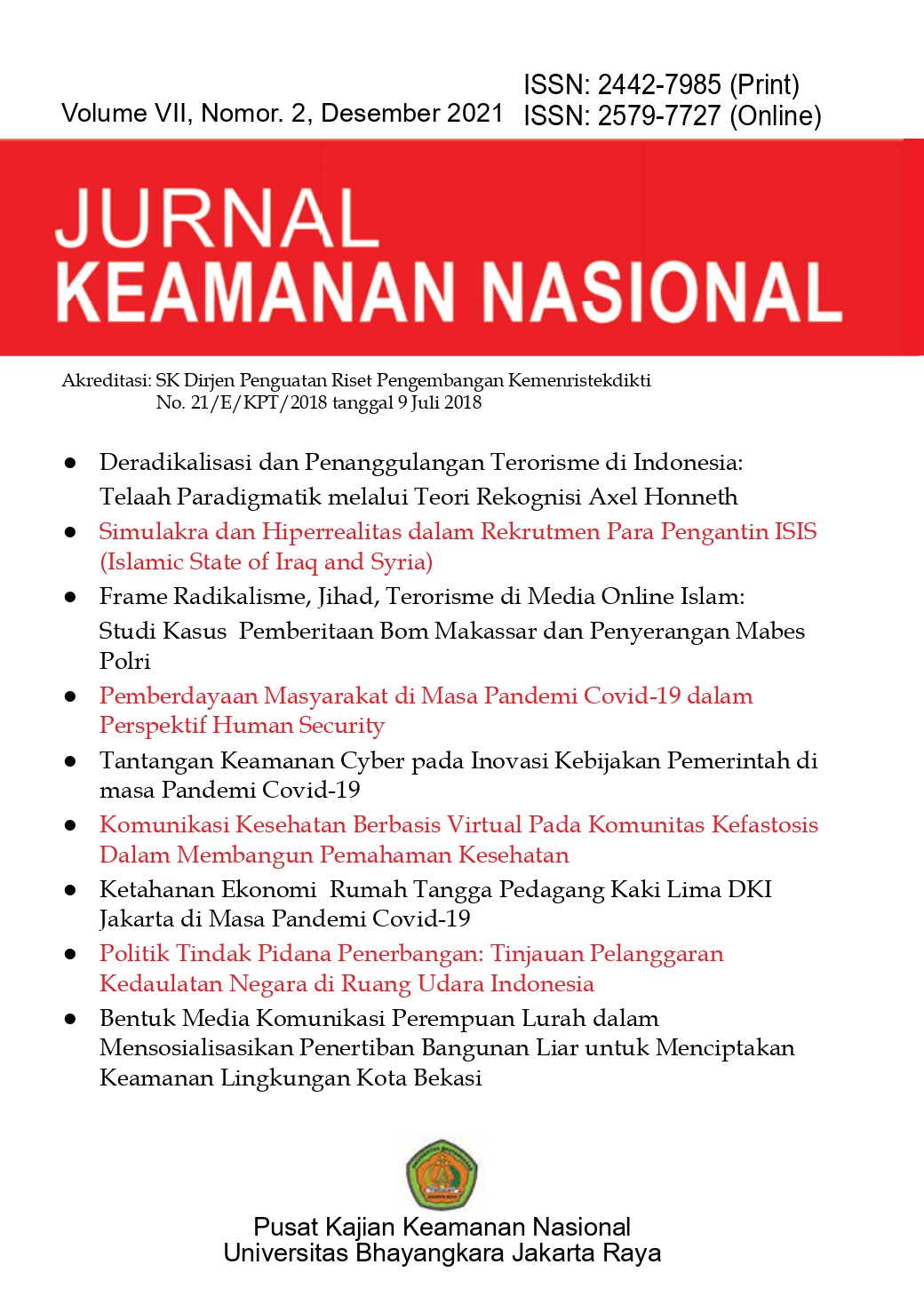Tantangan Keamanan Cyber pada Inovasi Kebijakan Pemerintah di masa Pandemi Covid-19
Keywords:
Policy Innovation; Cyber Security; ResponsivenessAbstract
This paper discusses the discourse on innovations in the Indonesian government’s policies in dealing with the COVID-19 pandemic, which is faced with cyber security challenges. Digitizing the public life sector is a must in the midst of the threat of the COVID-19 pandemic which requires restrictions on direct interaction between humans. Meanwhile, cybersecurity threats are a challenge to realize technology-based policy innovations in the midst of the COVID-19 pandemic. This article uses the theoretical framework of policy innovation and cyber security to explain cyber security challenges in policy innovations by the Indonesian government in the midst of the COVID-19 pandemic. This study found that the state had a fast and agile response in dealing with COVID-19 but needed new strategies and approaches, namely collaborative while prioritizing strengthening the role of regional heads. The role of regional heads has an orientation on two things, namely, first, local accountability to protect and fulfill the rights of the people and secondly, realizing local government responsiveness to be able to understand the constraints and needs faced by the community.
Downloads

Downloads
Published
Issue
Section
License
Please read and understand the copyright terms for submissions to this journal.
Copyright Notice
The Jurnal Keamanan Nasional is under the Creative Commons Attribution 4.0 International (CC-BY 4.0) License, according to which:
1) Authors retain copyright and grant the journal the right to first publication, with the work simultaneously licensed under the Creative Commons Attribution (CC-BY 4.0) that allows the sharing of articles published with the acknowledgement of authorship and the initial publication in this journal.
2) The authors are authorized to make additional contracts separately for distribution of the version of the work published in this journal (for example, publication in an institutional repository or as a chapter of the book), as long as there is recognition of authorship and initial publication in this journal.
3) Authors are authorized and encouraged to publish and distribute their work online (for example, in institutional repositories or on their personal pages) at any time before or during the editorial process, as it increases the impact and reference of the published work.












